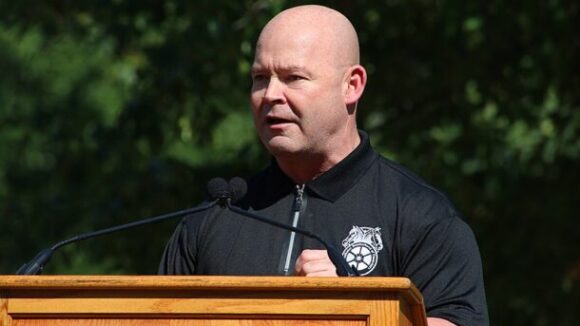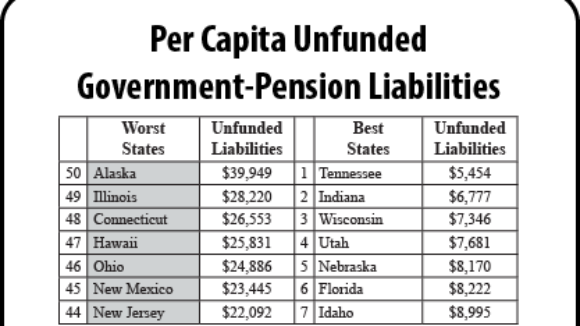Windfall For Derelict Union Pension Fund Chiefs
“The $86 billion giveaway to MEPPs inserted in the Biden Administration’s so-called ‘American Rescue Plan’ [ARP] has set the stage for even bigger bailouts in the future.”
Despite bipartisan abandonment of taxpayers and workers by members of Congress from both parties who are trying to curry favor with police and fireman unions, the Winston-Salem Journal understands what the real issues are:
The U.S. Congress shouldn’t be meddling with the decisions that city and town leaders must make regarding local government salaries.
Yet that is exactly what Congress is trying to do with legislation that would require all cities and towns of more than 5,000 population to bargain collectively with the leading union that represents public-safety officers — police, firefighters and emergency-service workers.
The bill was moving toward Senate approval last week when Republicans suddenly stopped supporting it. Senate leaders now say they will try to work out a compromise and bring the bill back to the floor.
Although President Bush has promised to veto the bill, it’s entirely possible that there is enough support in Congress to override that veto.
At the very least, an override vote will be close because, for a pro-union measure, the bill has had a good deal of Republican support. (North Carolina’s two senators, Elizabeth Dole and Richard Burr, and 5th District Rep. Virginia Foxx have opposed the bill as it has moved through Congress.)
Even if a Bush veto is upheld in Congress, this is not likely to be an issue that will go away. But it should.
The bill is offensive for a number of reasons.
The first and foremost is that it is probably unconstitutional. That annoying 10th Amendment, the one that reserves for the states all powers not explicitly enumerated for the federal government, is still on the books. There’s nothing in the U.S. Constitution that gives Congress the authority to mandate collective bargaining.
In the past, the amendment has been used as the constitutional basis for a lot of bogus arguments — mostly to oppose the civil-rights movement — but this is not such a case. Setting salaries for government workers is a state and local matter.
In North Carolina, public employees do not have the right to bargain collectively. The N.C. State Employees Association has just affiliated itself with a union, but that doesn’t mean it has the right to hold negotiations with the governor and legislators over salaries and benefits. Congress should not come along and decide that it will change the labor structure in this state.
With HR 980, the Congress is also passing a huge unfunded mandate for cities and towns. Collective bargaining would put upward pressure on salaries, and the federal government would not help with them at all. If Congress wants to do something to raise safety officers’ salaries, it should send some money to cities and towns for that purpose.
Congress is meddling here, involving itself in an issue that is best handled by towns, cities and states.
Let’s hope there are enough votes to sustain a Bush veto if the bill passes the Senate. This is an idea best forgotten.

“The $86 billion giveaway to MEPPs inserted in the Biden Administration’s so-called ‘American Rescue Plan’ [ARP] has set the stage for even bigger bailouts in the future.”

Joe Biden Threatens U.S. Communities’ Safety -- And this year U.S. presidential challenger Joe Biden, now favored to win in November according to most polls, is backing an even more expansive scheme to enhance the power of government union bosses in all 50 states...

State laws protecting employees’ Right to Work are strongly correlated with better- funded public pensions. On average, unfunded pension liabilities per…